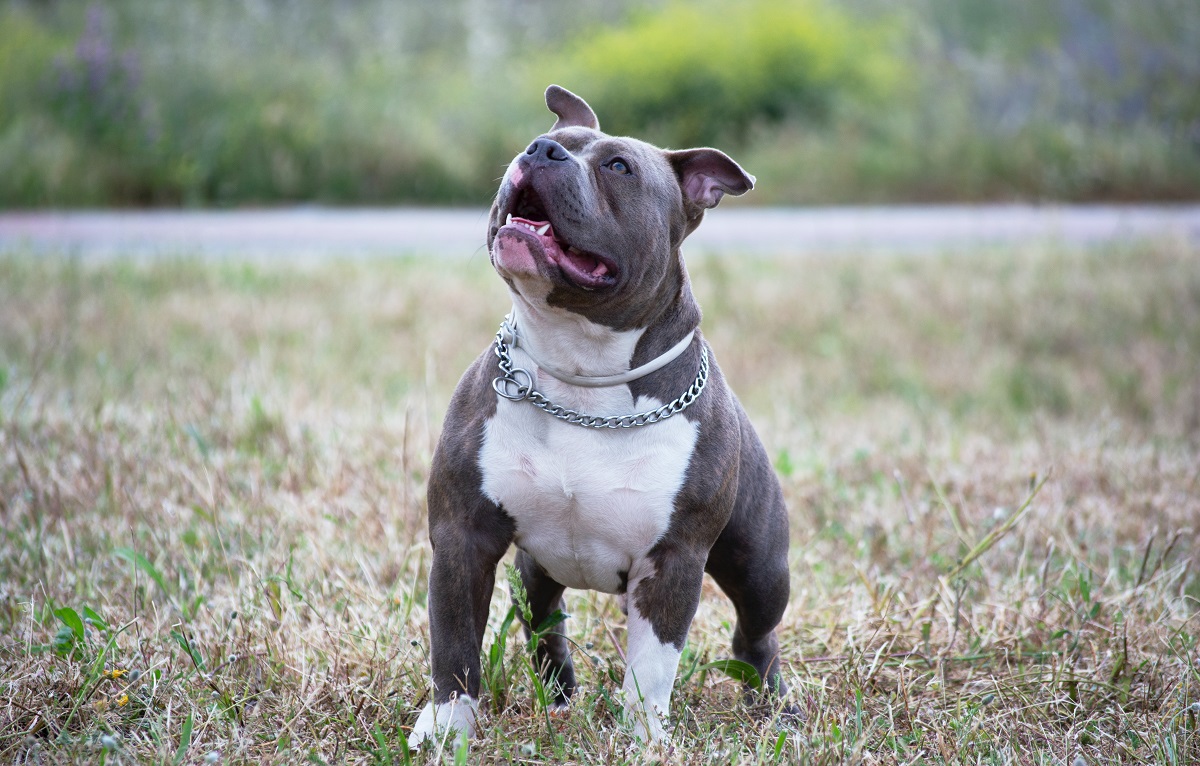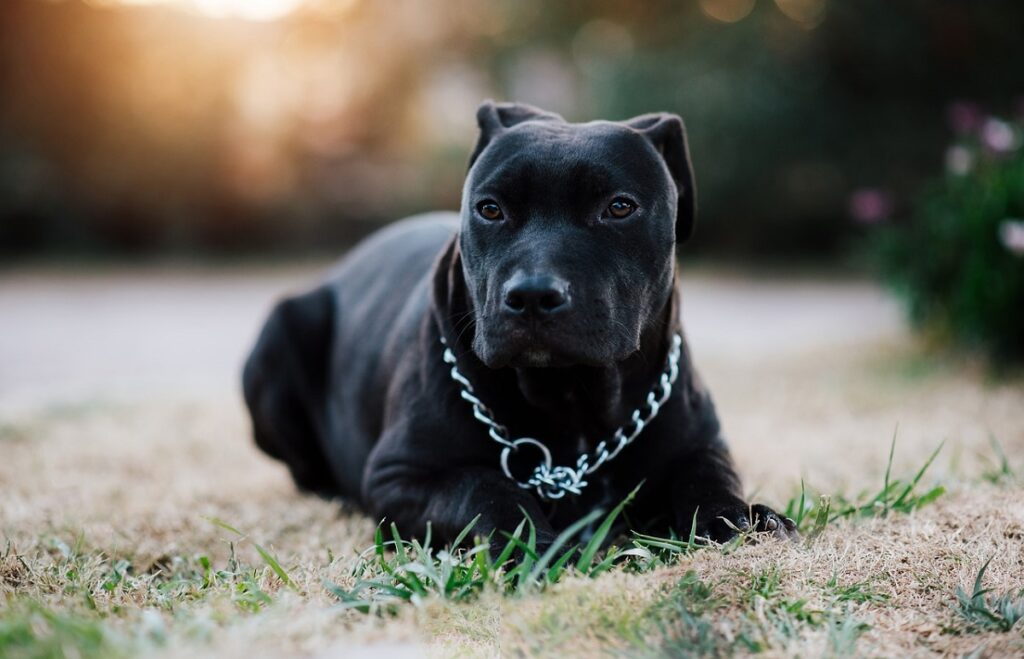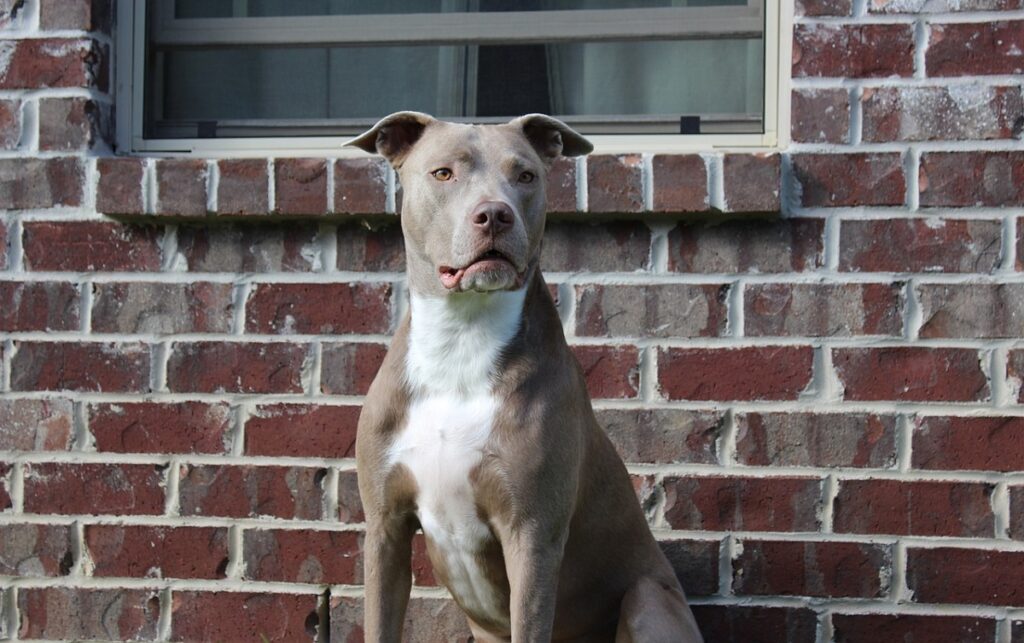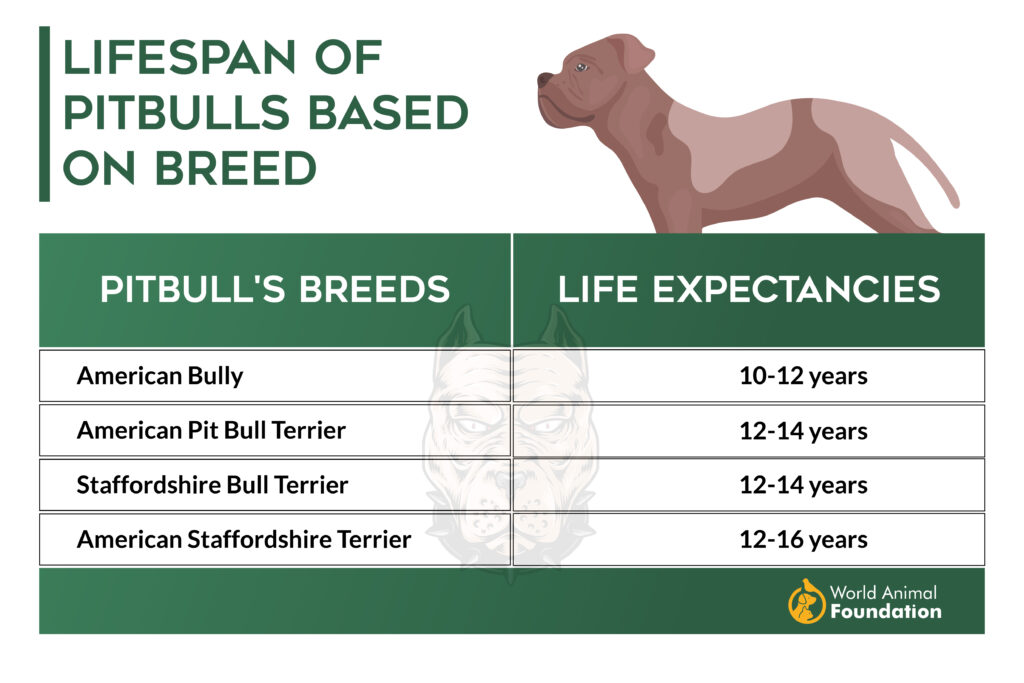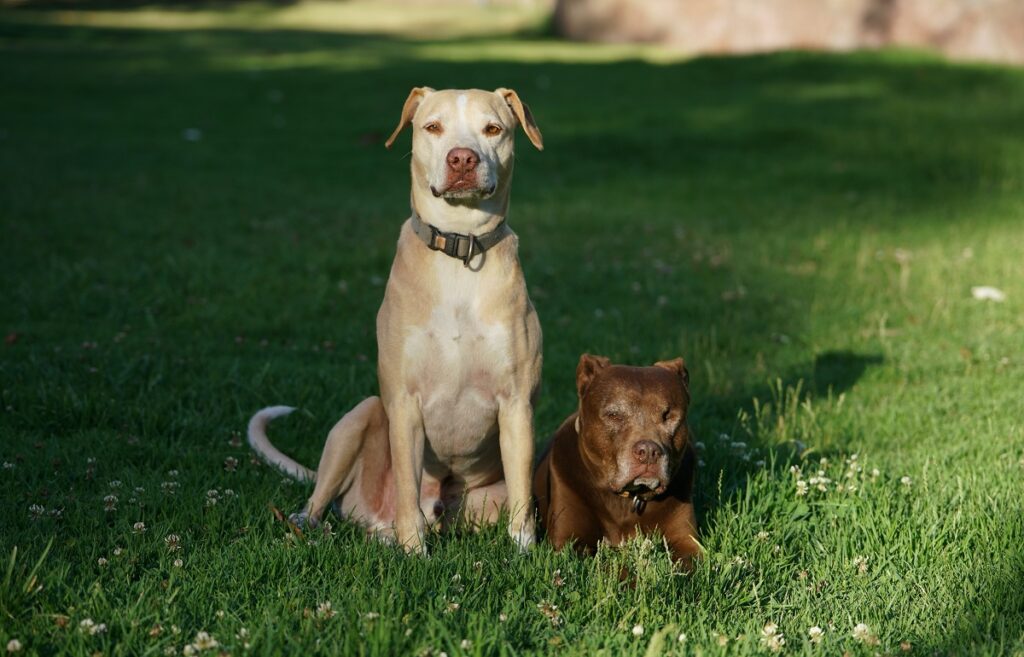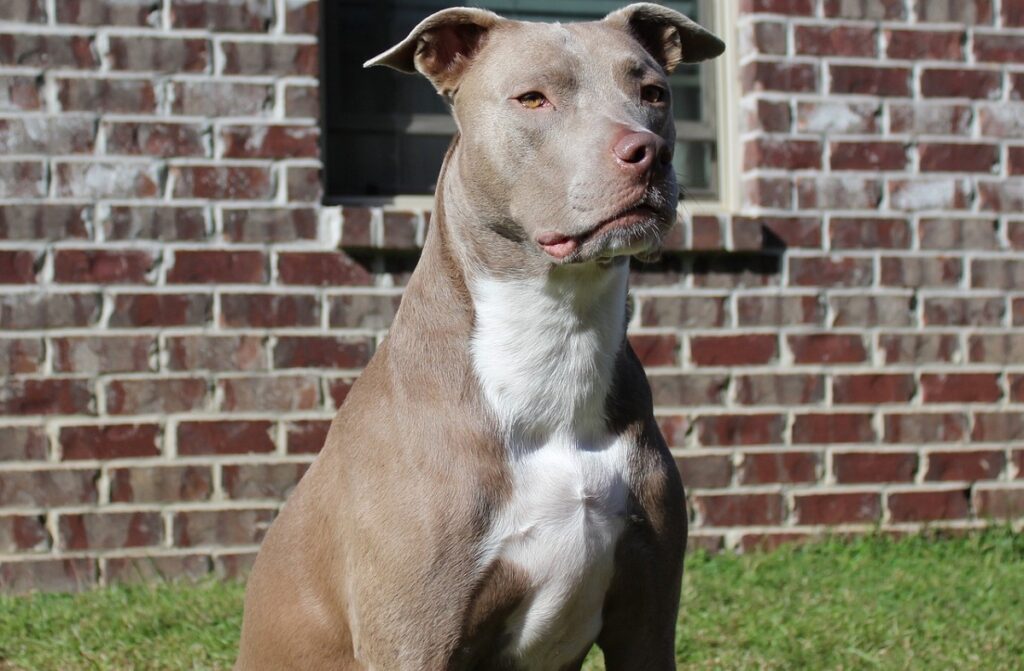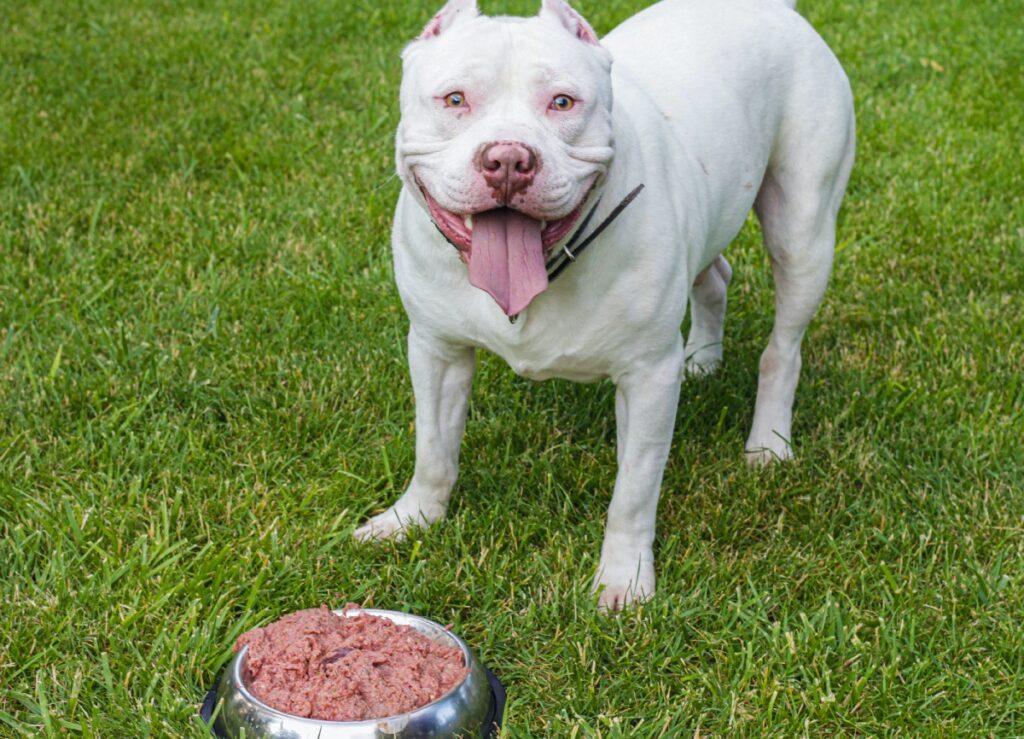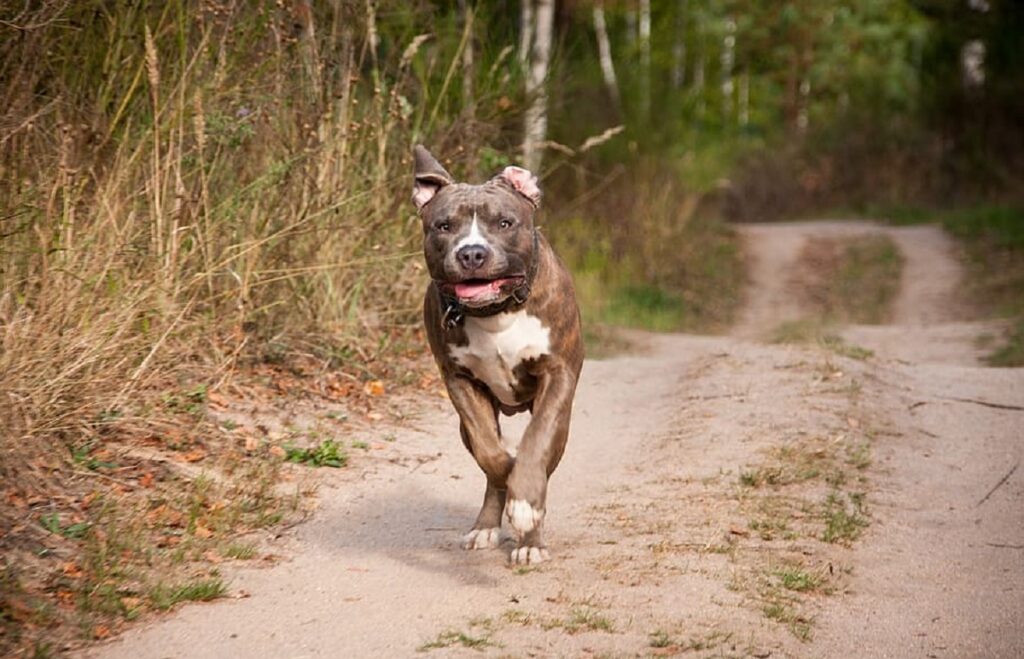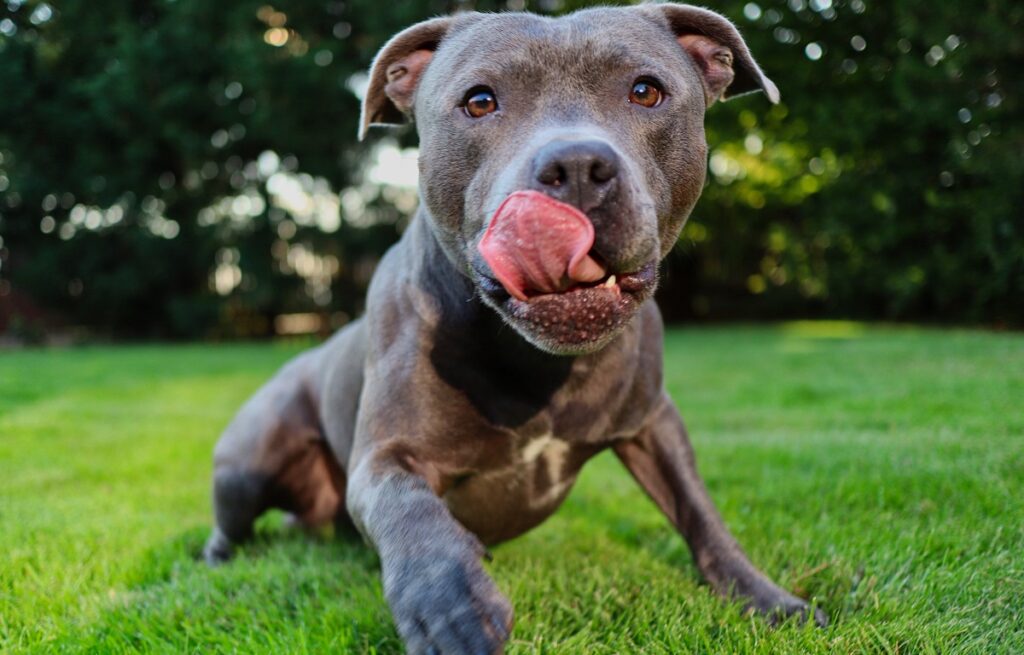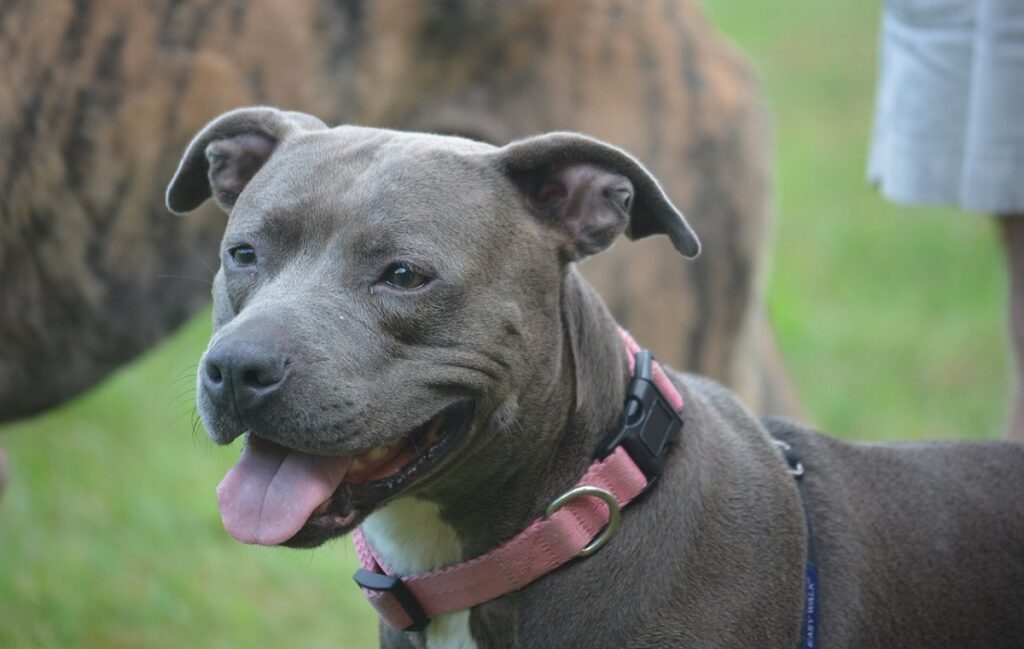Pit Bulls, a term encompassing several breeds like the American Pit Bull Terrier, often face misconceptions surrounding their temperament and lifespan. How long do these loyal and often misunderstood dogs actually live? Contrary to popular belief, their lifespan isn’t drastically different from other medium-sized breeds. This exploration delves into the factors influencing a Pit Bull’s longevity, from genetics and health conditions to nutrition and the crucial role of responsible ownership in ensuring a long, happy life for these powerful companions.
Pitbulls might be the most misunderstood animals in the world. They’re stocky, they have a storied history, and many have been trained to fight. Why are they so controversial? Does nature or nurture have the biggest effect on them? How long do pit bulls live?
We have those answers and many more that are eye-opening. These dogs are intelligent, sensitive, intensely loyal, and one of the best dog breeds to have. They want to please and be glued to your side.
Many of their guardians can’t imagine ever having any other breed after they’ve had a pittie. These canines tend to win people over with their goofy grins and sloppy kisses.
Since there are so many myths about them, let’s get into the world of the pitbull. They deserve to be understood. They’ll be your best friend and your greatest protection. Just have an open mind and heart so you can learn what they want you to know.
How Long Do Pitbulls Live
The average pitbull’s lifespan is 10-16 years. This takes into account all four types of “bully breeds” that make up pitbulls. “Pitbull” itself isn’t a breed at all. We break it down further in this article a little later.
Pit bulls live long lives if they’re treated well. But you’ve heard the rumor… That pit bulls are dangerous. However, if they’re not exposed to sadistic training methods full of pain and suffering, they can be about as dangerous as a kitten.
From the time they’re puppies and into their senior years, these dogs can provide love and joy to all those around them.
How pitties are treated plays a huge role in what kind of dog you’re going to have physically and behaviorally. This is true in other dog breeds, but especially for pitbulls. By giving them adoration, affection, proper training, and plenty of treats, you’ll have a friend for life.
Common Causes of Death in Pitbulls
Car Accidents
A study was done on the number of dogs that sustain injuries in car accidents. It showed the survival rate was 83.2 percent, with larger dogs having more frequent limb fractures.
- 84% of dog owners travel with their dogs without restraining them. Most of us wouldn’t think of not putting a human baby in a car seat. Dogs are family members, too, and should be protected while out and about.
- 16% of people who travel with their dogs use proper safety restraints. (There are crash-tested dog car seats readily available at online retailers.)
- 60% of dog owners have driven while distracted by their pets as passengers. It’s easy to “take a lick” from your bestie while driving, but it’s not safe for you or your dog. Keep them in a car seat or hard-sided kennel while traveling.
Genetic Diseases
Each dog breed has certain illnesses they’re more prone to. With pitbull terriers, there are no prevalent major diseases (heart, liver, etc.), but the following are things you need to look out for so they don’t turn into life-threatening problems. Pitbulls are susceptible to:
- Hip dysplasia
- Cataracts
- Allergies
- Skin infections
- Cleft lip/Palate
- Hypothyroidism
- Patellar Luxation (Knee cap/Patella-related)
- Demodicosis/Demodectic Mange – (Parasite, in particular, mites-related)
- Nerve disease
- Bladder stones
- Blindness
- Parvovirus
Rare: Aortic stenosis — A heart issue that causes it to work harder than necessary.
Pitties don’t seem to have too many serious health issues. Despite the possible ailments and health issues above, they’re generally healthy dogs, so chances are your pitbull terrier will live a long and healthy life.
Uncaring owners
Most of us have heard stories about unscrupulous pitbull guardians that use these precious dogs as weapons… to fight them against each other. It still happens all over the world, and in America, 40,000 individuals have their hands in dogfighting annually.
Unfortunately, they also often treat pitbulls as trophies. They just want to produce more, and inbreeding and linebreeding become a major problem.
- Inbreeding – The mating of close relatives
- Linebreeding – Parents that have a common ancestor are mated but not as closely related as those that are inbred.
Lifespan of Pitbulls Based on Breed
When it comes to Pit bull’s lifespan, it’s a journey filled with unique characteristics. The American Bully typically enjoys 10 to 12 years of life, while the American Pit Bull Terrier and Staffordshire Bull Terriers tend to live a bit longer, reaching 12 to 14 years.
The American Staffordshire Terriers top the list, with a potential life expectancy of 12 to 16 years. These numbers offer a glimpse into the various breeds of Pitbulls and the precious years you can share with these loyal and loving companions.
There is no such thing as a pit bull breed — only the four TYPES of pit bulls listed here. A pitbull lifespan is quite long for a larger dog. For instance, Staffordshire bull terrier dogs are stocky and muscular types, standing 17 to 19 inches at the shoulder.
Factors Affecting the Lifespan of Pitbulls
Spaying/Neutering
Spayed and neutered dogs across the board live longer. Regarding pitbulls, 65% of them are shelter animals.
Large dogs—specifically, German shepherds, huskies, and pitbulls—are the most frequent shelter residents. (source) They’re being killed/euthanized at an alarming rate.
Diet
Although it depends on your pitbull’s health, size, and age, in general, a diet high in lean meat (high-quality protein like chicken or pork) is suggested.
Dog foods rich in omega-3 and omega-6 fatty acids are good for their diets. Also, aim for limited-ingredient meals that generally contain one protein source (like lamb) and one carbohydrate source (like brown rice).
Additionally, serve foods rich in probiotics. Many guardians give their dogs homemade dog food or raw dog food, but if you choose this, talk to your vet, research extensively, and even talk to a dog nutritionist.
An average healthy weight of a female is 30-50 lbs and 17-20 inches tall. Males are larger at 35-60 lbs and 18-21 inches tall. The puppies are small pocket pitbulls you can hold in your hand, but they grow quickly. Feeding times should be at regular intervals so they become familiar with having a schedule.
Make sure you don’t overfeed your pittie since they have the propensity for obesity.
Exercise
Pitbulls are energetic dogs that need an active lifestyle and regular exercise. They should have a minimum of 30 to 45 minutes of vigorous exercise per day. Running, skating, or riding a bike with them is ideal. (Important: Study how to safely ride bikes with your dog. I know this from experience. Can you say “knee surgery?”)
If you’re unable to run him or take him for a rambunctious swimming trip, take frequent walks with him. Play a game of fetch. This not only exercises you and your dog but is also the perfect time for companionship.
Health conditions
Stay on top of wellness check vet visits to make sure your dog doesn’t succumb to any of the illnesses mentioned above. Most pitbulls that are left unattended or denied proper vet care will develop skin issues or worse and could even live shorter lives.
Heart issues have been seen in the breed but aren’t likely with a well-cared-for dog. Also, make sure you administer any medication your vet prescribes. And remember, prevention is the greatest form of protection.
Wellness checkups
After your dog is a year old, schedule regular vet visits once a year. This way, he/she can be given a complete physical, and his vaccines/booster shots can be updated. Of course, if your sweetie is experiencing any adverse symptoms or has a health issue before, then you’d need to go more than once a year for your vet to examine him.
Environment
Important: Pitties are NOT outdoor dogs. If left alone outdoors for long periods, you’re likely to see behavioral changes that could be dangerous. As with all dogs, pitbulls need to be raised in a clean, healthy environment. If you have other animals in your home, great! Ideally, they would all be raised together from puppyhood since a pitbull’s socialization is so important.
Shower your pittie with lots of chew toys and puzzle games. This makes sure their minds and bodies stay active and healthy, especially when there’s inclement weather and they can’t get outside.
They also love kids. Pet owners rave about their mushy pitbulls that can’t get enough of their human siblings. Although highly debatable, but some even acted as nanny dogs to children.
Love and Care
These dogs are highly social with their families and need all the love and care you can give them. If you need to travel and can’t bring her with you, look into dogsitters or fun boarding businesses that give hands-on care. You can’t love a pitbull too much!
To make sure your pittie lives a longer life, be sure to study and follow this list to know you’re doing all the right things. A healthy pitbull is a happy one.
Age and Breed of the Oldest Recorded Pit Bulls
Daddy
- 1994-2010
- American pitbull terrier
- Age – 16
- Guardian: Cesar Milan
The American pitbull terrier “Daddy” lived to be 16-years-old. He was the “son” of Cesar Milan who is famous for being the greatest dog whisperer. Daddy became famous as well when he made regular appearances on Milan’s television show “Dog Whisperer with Cesar Milan.”
Daddy was known for his big heart and showed empathy to animals and people. He helped train many canines with his calm temperament and the way he seemed to understand other animals.
Pete the Pup
- Sept 9, 1929-Jan 28, 1946
- American Staffordshire terrier
- Age — 16
- Guardian: Lt. Harry Lucenay
“Staffie,” Pete the Pup, was famous, too! He was an actor on one of the most favorite children’s shows ever, The Little Rascals.
In the 20s, pit bulls were all the rage and praised for being such incredible family dogs.
Pete’s probably most well known for the circle around his eye, which was made with makeup.
Pete was the second actor in the role (though he was no “B” actor) that was originally given to his mother, Pal, an American pitbull terrier. When Pete took over the role, the circle was moved from being around Pal’s left eye to being around Pete’s right one.
His final appearance on the show was in 1938. Pete is buried at Los Angeles Pet Memorial Park.
Max — Oldest pit bull on record
- Aug 9, 1983-May 18, 2013
- Beagle/Dachsund/Terrier mix
- Age – 29
- Guardian: Janelle Derouen
Reaching the ripe old age of 29+, Max is said to have been the oldest pitbull in the world. Three days before his death, he was awarded the coveted “World’s Oldest Dog” from Guinness World Records. He died of a seizure in 2013.
FAQs
What Is the Pitbull Controversy?
Pitbull terriers have been used as fighters since the early 1800s. They’re descendants of Old English bulldogs from England, and back then, they were used as bait for bulls and bears as a sport. (Especially cruel)
When bull-baiting was outlawed, breeders started breeding larger dogs with terriers, and the pitbull terrier was born. In the 1800s, immigrants traveling from the British Isles to America brought the dogs that started out with no controversial whispers. They were used as herding, hunting, and guarding dogs.
It wasn’t until the 1980s that the “sport” of dogfighting became known to the public. The most popular dog breeds used were strong and agile, so pitbulls became the unknowing target of dogfighters who wanted to train them for dog fights. Greed and evil propelled the “sport,” and the public became aware of it.
Sheer panic followed in the form of people being petrified of this particular dog. Today, many landlords will not allow “bully breeds” to live in their housing developments. Many insurance companies won’t allow customers to buy insurance if they have pitbull terriers. Due to breed-specific legislation, many people are scared to even approach one.
Dog and breed advocates got involved and started spreading the truth. That any dog can be vicious if they’re trained to be. That it’s the person, not the dog, who creates an aggressive animal.
And so we have the debate that continues today – To pitbull or not to pitbull. If you don’t, you’re missing out on one of the most loving dog breeds there are. They want to please more than they want to fight.
Which Breeds of Pitbull have a Longer Lifespan?
Although the pitbull terrier has a longer lifestyle, comparably than many other breeds, the American Staffordshire terrier has the best chance of living a long life.
What Are the Factors that Increase the Lifespan of a Pitbull?
- Diet — appropriate to the breed and well-balanced
- Environment — peaceful and clean, and don’t forget — they’re indoor dogs
- Lifestyle – plenty of exercise and fresh air
- Health – Yearly vet visits, preventive care like keeping teeth clean
- Genetics – Check on who their parents and ancestors are. If it’s a mixed breed pitbull (be proud!), it’s almost impossible to make this happen. Dogs are like people in that the health of their predecessors has a lot to do with their own.
- Spaying/Neutering – Altered dogs are said to live longer.
- Registered breeder — If you can’t adopt a pittie from a shelter, and we sure hope you can, make sure registered breeders give you the background on their parents and ancestors so you know your dog has a better shot at having a healthy life.
A University of Georgia study, based on the medical records of more than 70,000 animal patients, found that the life expectancy of neutered male dogs was 13.8% longer and that of spayed female dogs was 26.3% longer.
- Age – If a pitbull terrier puppy is adopted, its longevity is in your hands. If it’s a senior dog, you can’t be sure of the conditions he has lived through. (Note: This is not to say that adopting a senior isn’t a good idea. They’re some of the best dogs there are.)
- Love – ‘Nuff said.
What Are the Factors that Decrease the Lifespan of a Pitbull?
- Diet – Low in protein, fiber, and other essential ingredients
- Environment – Hostile, dirty
- Lifestyle – Sedentary, always indoors
- Health – Too few vet visits, no preventive care like missing vaccinations
- Genetics – If a dog is inbred or comes from parents who are in poor health, there’s a greater chance a dog will have health problems.
- Spaying/Neutering – If a dog is left intact, it can cause health and behavioral problems.
- Abuse/Neglect/Used to fight or as bait dogs
Conclusion
Now that you know the age a pitbull terrier can reach, maybe you’ll think about them the next time you’d like to adopt a dog. They’re gentle, loving, nurturing, and indoor dogs. If we keep getting the good word out there about these amazing creatures, maybe those shelter statistics will come down.
Family dogs, great with kids, and wonderful companions, any of the pitbull breeds are excellent to choose from. Just make sure you have a lot of love to give. They certainly deserve it.
Pit Bulls, despite their robust appearance, have a similar lifespan to other medium-sized dogs, averaging 12-14 years. While genetics, diet, exercise, and access to quality veterinary care all contribute to their longevity, responsible ownership plays a crucial role. Providing a loving, enriching environment free from stress and with preventative healthcare maximizes a Pit Bull’s chances of enjoying a long, healthy life. Ultimately, understanding their specific needs and committing to their well-being allows owners to cherish these loyal companions for many years to come.

